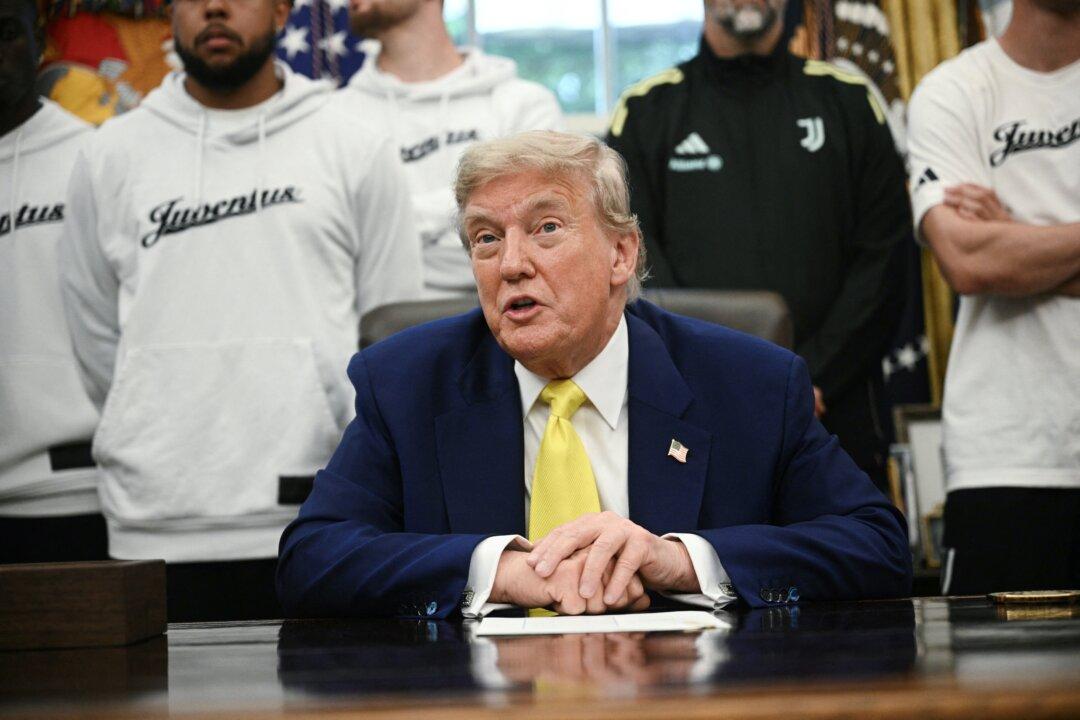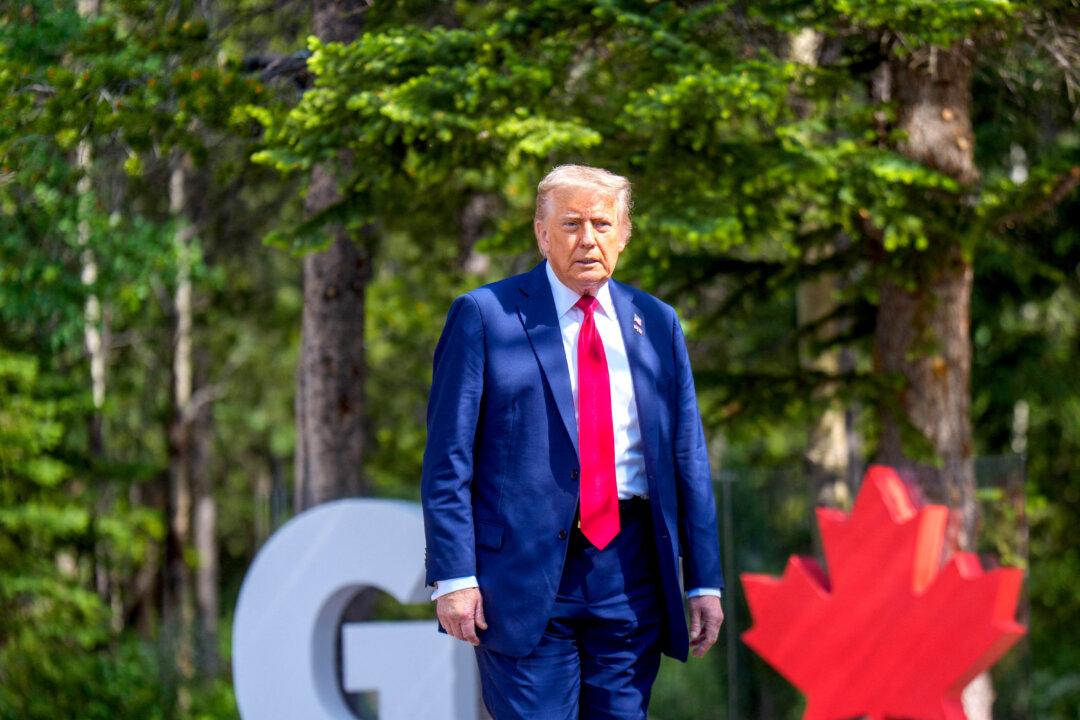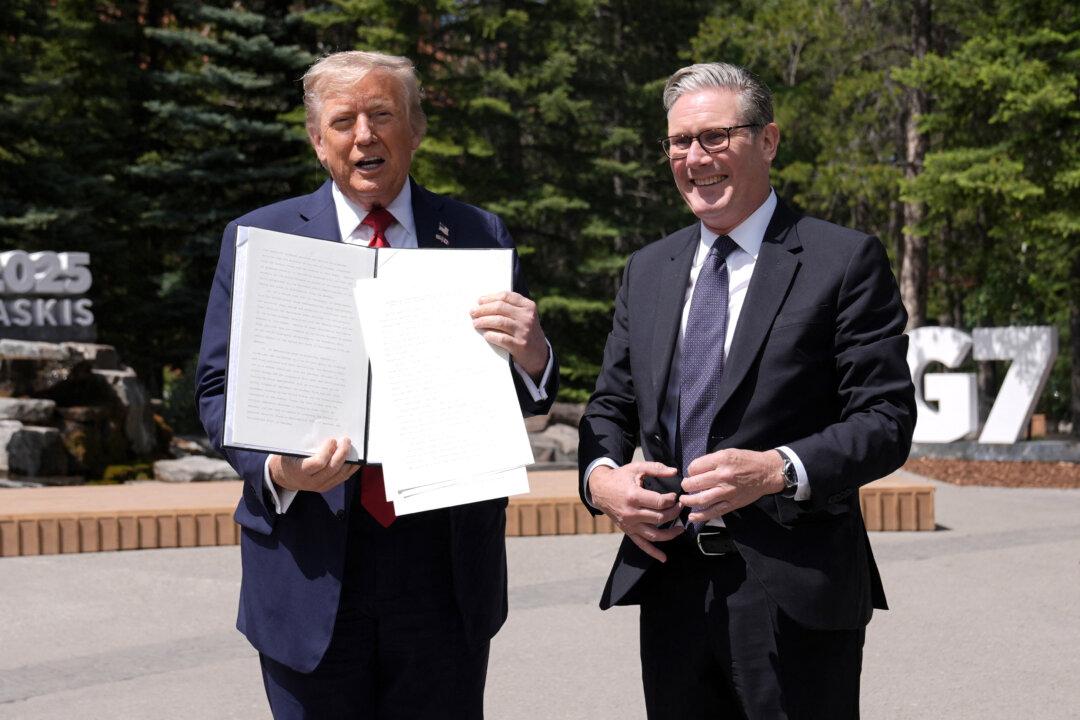WASHINGTON—When U.S. President Donald Trump joins world leaders at the Group of Seven (G7) summit in Canada on June 15, he will find a different agenda awaiting him. In a significant departure from recent years, the host nation is sidelining climate action and gender equality, issues that were once central to the summit’s mission.
This year’s gathering will prioritize issues such as energy security, artificial intelligence (AI), critical mineral supply chains, and global economic stability, reflecting a shift in priorities driven by Trump’s return to the White House and a renewed focus on the G7’s original mission, according to experts.
Trade tensions, heightened by recent U.S. tariffs, along with geopolitical crises such as the Israel–Iran escalation, the Russia–Ukraine war, and the conflict in the Gaza Strip, will also be key topics in the leaders’ discussions.
Many believe that Canadian Prime Minister Mark Carney, as host of this year’s summit, is adopting a pragmatic approach to ensure that the meeting addresses the most pressing challenges that resonate with all member countries.
If topics such as climate change or gender are raised, leaders are unlikely to go beyond existing agreements or make new commitments, Paul Samson, head of the Centre for International Governance Innovation, a Canada-based think tank, told The Epoch Times.
Many organizations and even some countries are hoping for new commitments on gender and climate, he said, “but it’s not going to happen” at this summit.
“They wouldn’t even be able to get it in the communiqué with President Trump there,” he said.
The upcoming meeting, which marks the 50th anniversary of the G7, will be held in Kananaskis, Canada, from June 15 to June 17.
The group—which consists of the United States, Canada, France, Germany, Italy, Japan, the UK, and the European Union—represents more than half of global gross domestic product.
Summit Agenda
Canada’s priorities for this year’s summit focus on three main areas. The first is protecting communities and the world by addressing issues such as “foreign interference and transnational crime,” according to the agenda, and improving joint responses to wildfires.The second priority is enhancing energy security and accelerating the use of AI and quantum technologies. This involves strengthening critical mineral supply chains.
Lastly, Canada aims to discuss future partnerships by increasing private investment in infrastructure, creating high-paying jobs, and opening dynamic markets.
The leaders will focus on areas in which common ground is possible, according to Samson, particularly around energy supply chains and how to power the AI and data revolution. Discussions may include joint projects, shared data centers, and ways to strengthen supply chains, possibly through partners such as India.
The first Trump administration believed that the G7 had strayed from its original mission by focusing too much on controversial issues, according to Caitlin Welsh, director of the Global Food and Water Security Program at the Center for Strategic and International Studies (CSIS).
Welsh previously served on the National Security Council and National Economic Council during Trump’s first term.
Speaking at a recent CSIS press briefing, she said this year’s agenda appears to align with the G7’s original mission of promoting global economic stability and growth.
Trump’s 1st Canada Summit
The last time Canada hosted the G7 summit in 2018, during Trump’s first term, relations between then-Prime Minister Justin Trudeau and Trump were notably strained. The summit in Charlevoix, Canada, ended with heightened tensions over trade. Trump left early and declined to endorse the joint communiqué. It was the first time in G7 history that the final statement was not unanimously backed by all leaders.A widely circulated photo from the 2018 summit captured the tension of the moment. It depicts Germany’s then-Chancellor Angela Merkel leaning over a table while speaking to Trump, who sits with his arms crossed, looking up at her.

CSIS experts believe that such drama is unlikely in 2025.
“For most European leaders, the political incentives really aren’t there to sort of manufacture a confrontation with Trump,” Max Bergmann, director of the Europe, Russia, and Eurasia Program at the CSIS, said during the briefing.
China Looms Large
China will be a central focus at the summit.Leaders are expected to express concerns over rising tensions in the East China Sea and South China Sea and China’s ongoing military build-up. As in past years, they will likely emphasize what the G7 has said is the need for “peace and stability across the Taiwan Strait.”
According to Samson, China will be an underlying theme of the summit’s discussions, even if not named in the final communiqué. He noted that key agenda items such as transnational crime, critical minerals, and advanced technologies are designed to counter the Chinese regime’s growing global influence.
Meanwhile, Carney’s interactions with Trump will draw close attention, particularly amid trade tensions. The United States recently doubled tariffs on steel and aluminum, citing the flood of low-cost Chinese metals into global markets.
Trump has also pressed Canada and Mexico on fentanyl trafficking and suggested that Canada should become the 51st U.S. state in order to get free “golden dome” protection—a proposed multilayered defense system.
In contrast to the retaliatory measures of previous years, Carney has adopted a measured approach, exempting certain products from countertariffs to protect Canadian businesses and consumers from rising costs. He is also engaged in direct talks with Trump to finalize a trade agreement, according to Canadian media.
While no deal has been finalized, it remains to be seen whether an agreement will be reached before Carney and Trump meet one-on-one on the summit’s sidelines.







